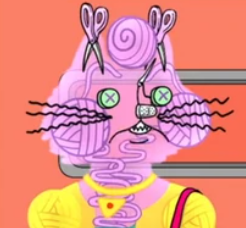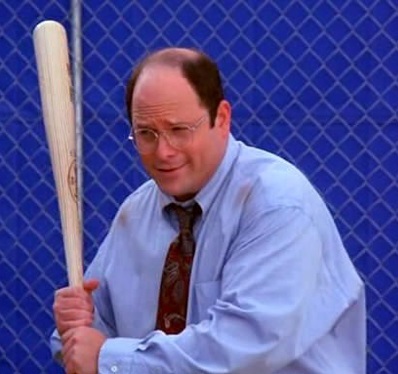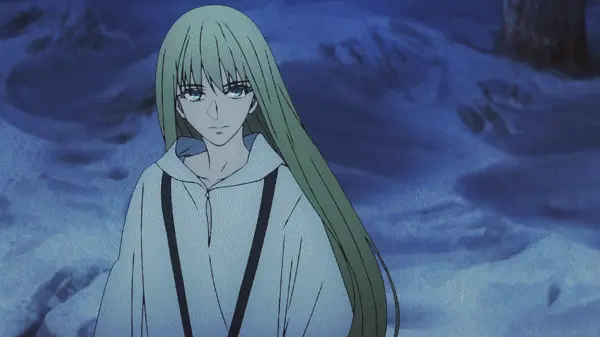Over the years, Miyazaki’s political stance about America’s involvement in global conflicts as well as the country’s contribution towards the globalisation of American culture has been unwavering. “Anti-jeans, Anti-bourbon, Anti-burgers, Anti-fried chicken, Anti-cola, Anti-American coffee, Anti-New York, Anti-West Coast,” Miyazaki once said while describing his beliefs.
According to excerpts from multiple interviews, Miyazaki’s dislike for all things American also extends to the realm of cinema.
“Americans shoot things and they blow up and the like, so as you’d expect, they make movies like that,” Miyazaki stated. “If someone is the enemy, it’s okay to kill endless numbers of them. Lord of the Rings is like that. If it’s the enemy, there’s killing without separation between civilians and soldiers. That falls within collateral damage.”
Miyazaki compared the visual politics of large-scale Hollywood productions such as the Lord of the Rings to the country’s international policies. Attacking America’s actions in Afghanistan, Miyazaki claimed that such projects are a dangerous addition to public discourse because they diminish the value of human life by weaponising the audience through cinematic violence.
Anti-jeans, Anti-bourbon, Anti-burgers, Anti-fried chicken, Anti-cola, Anti-American coffee, Anti-New York, Anti-West Coast,” Miyazaki once said while describing his beliefs.
Sounds like your average r/genzedong poster :miyazaki-laugh:
He was a commited marxist till be watched the ussr fall. Good to see he still has the spirit in him.
That's even weirder and I wonder how much of which factor played into it. Hmm...
Miyazaki has done and said some based and some unbased stuff (personality stuff, way too much military fetishism, some bit misanthropic eco localist positions etc) but at the end of the day he led the first and biggest union and workers movement in the industries history (in Toei in the 60s) , he has made a bunch of films with good messaging, he has helped and participated anti colonial anti-US bases movements in Okinawa even to this day, he refused to attend the Oscars due to the Iraq War . And many more. He is one of the good ones. Also a great director of course. Never really missed
Shoutout to the late Ghibli co-founder, Miyazaki's best friend and equally based Isao Takahata. One of the most brilliant directors, maybe even more so than Miyazaki. Please go watch Grave of the Fireflies, Only Yesterday, The Tale of the Princess Kaguya and Pom Poko
I went into that one cold, thinking I was going to watch some wholesome anime...
It was pretty horrible lol. Spoiler for those who haven't seen it:
spoiler
Half way through or so, when the two are in the cave or wherever, subsisting on candy and getting sick, I was still under the impression that it would all work out because this is an animated wholesome chungus movie by Studio Ghibli. It was indeed devastating. I suppose I was probably exactly the right audience for that movie, lol.
I will never watch Pom Poko again, istill have nightmares about magic testicles.
That's the most based thing you can do. Beat up cops with your magic raccoon testes.
If it’s the enemy, there’s killing without separation between civilians and soldiers. That falls within collateral damage.
No lies detected.
There are no innocent civilians. It is their government and you are fighting a people, you are not trying to fight an armed force anymore. So it doesn't bother me so much to be killing the so-called innocent bystanders. ---Curtis LeMay
To be fair, Jackson beefed up the hacking and the slashing significantly
Anti New York, Anti-West Coast
I find it odd that after listing several things that are pretty synonymous with America as a whole, he kinda suddenly switches to saying he only dislikes certain areas of it at the end. I have a hunch based on all the lead-up that what he really wanted to say is that he's Anti-America in general, but even he knows flat-out saying that might be a bridge too far and get him in trouble, so he toned it down at the end to only disliking fairly small and specific areas of it lol.
I think he's just listing a bunch of things that are American, not that he has some great love for the heartland
As a non US person, if you go by what reach us culturally New York and the West coast are what the US is. Everybody in the tv lives in an apartment in New York. Everybody in the songs is from California
as a non West Coast / non NYC American, the cultural reach of America™ is absolutely as you say. it's their country. the rest of us are just here, extracting their food, materials, and energy before filling big holes with their garbage, waiting to be enlightened enough to be called to the metropolis.
nothing says "homegrown culture" like homogenized, industrial food treat warming stations and stockpiles appearing along the federal interstate system like a web of slop troughs to facilitate the dislocated, transient labor necessary to support rapid resource extraction.
I mean, those are the culturally hegemonic areas. Even the areas outside those in the US that do have their values exported across the globe, like Christian nationalism, do so through the media and economic centres based in those places: radio, internet/social media, finance capital, etc.
He also hates Tokyo, so maybe he sees them as like America's Tokyo(s) too in regards to social power/influence.
Edit: Although I guess he shoulda' add Washington D.C./Georgia though if my analysis is correct.
It's harder to know shit about the hinterland because every media takes place in new york or cali (filmed in vancouver).
I think he was just listing the most culturally relevant parts of the US to non-Americans. By and large, someone in another country with some exposure to US culture is gonna be familiar with NYC and California. But Missouri and North Carolina and Utah are entirely irrelevant. If you said you hated British culture, you might say "I hate London and I hate the English countryside" because that's where 98% of their films and shows take place. You wouldn't say "and I hate Bristol and Sunderland".
He does live about as far from Ohio as you can get, so this checks out.
Seems relevant that the forces of Mordor/Isengard are invading armies, making every Uruk present at the battles of Helm's Deep and Minas Tirith a combatant or combat support. I think there's room for critique of the battles at the black gates and especially the fall of Isengard, since then we're expected to believe that literally every Uruk in these major industrial centers is a warrior and there is no such thing as civil society among them.
Ultimately, Tolkien was vehemently opposed to war after his experiences, and his depictions of the "dark forces" is a critique of warmongering and militarism that is made with Prussians in mind more than POC. (Insert "Mordor is an army with a state" joke here) I'd even go as far as to say his evil army is like the myth of the dragon, composed of pieces taken from conquerors throughout history. Why do their descriptions call to mind Mongol armies? Because that's the single most impactful invading army in history. Why are they portrayed as industrial and gleefully destructive of nature? That's in his living memory. He created a black and white faerie story to tell his kids, to exercise his linguistic passion, and to escape from reality. He wanted to demonstrate what he considered the finest qualities of humanity, perseverance in the face of adversity, sacrifice for a noble aim, and the superiority of the peaceful life over a warlike one. Did he have weapons grade British and Catholic brainworms that make their way into the story? Absolutely. But mindless slaughter is anathema to the spirit of his works.
Rolling Stone: You’re a congenial man, yet these books are incredibly violent. Does that ever feel at odds with these views about power and war?
George R R Martin: The war that Tolkien wrote about was a war for the fate of civilization and the future of humanity, and that’s become the template. I’m not sure that it’s a good template, though. The Tolkien model led generations of fantasy writers to produce these endless series of dark lords and their evil minions who are all very ugly and wear black clothes. But the vast majority of wars throughout history are not like that. World War I is much more typical of the wars of history than World War II – the kind of war you look back afterward and say, “What the hell were we fighting for? Why did all these millions of people have to die? Was it really worth it to get rid of the Austro-Hungarian Empire, that we wiped out an entire generation, and tore up half the continent? Was the War of 1812 worth fighting? The Spanish-American War? What the hell were these people fighting for?”
There’s only a few wars that are really worth what they cost.
That's what makes it a fantasy - we're asked to suspend our disbelief to imagine a war that matters against a defined, unquestionably evil foe. Yet even then, he still came to the narrative conclusion that war is hell and ruins the people who fight it. Problem comes when we believe reality is or should be like the faerie stories. George writes a bleak story of realpolitik then puts supernatural elements in, creating a different thing altogether. The problem is less that Tolkien's story is ethically unsophisticated, but more that people rip the images and elements from it without understanding that it's not the be all end all.
I think I agree with you, and to make a left turn into a hot take, I think that's maybe what I disliked the most about the LotR movies. People laud their faithfulness but I really felt there was something they missed about the books, morphing them into big epic plot, action, and effects-driven adventure stories where the characters are stitched together with a few quips and heartfelt exchanges.
Yeah. Tolkien's stories do have battles between armies but it's like a few pages total out of the whole LOTR. When adapting to film they really inflated the presence of the violent action.
room for critique of the battles at the black gates and especially the fall of Isengard, since then we’re expected to believe that literally every Uruk in these major industrial centers is a warrior and there is no such thing as civil society among them
exterminationist rhetoric correctly identified in the text
mindless slaughter is anathema to the spirit of his works
:puzzled:
“How many people are being killed in attacks in Afghanistan? The Lord of the Rings is a movie that has no problem doing that [not separating civilians from enemies, apparently]. If you read the original work, you’ll understand, but in reality, the ones who were being killed are Asians and Africans. Those who don’t know that, yet say they love fantasy are idiots.”
damn lmao this is going to rustle some jimmies here.
meanwhile r/ukraine is pissed off about being censored for calling Russians 'orcs'
Did tou guys see Miyazaki's last film, Wind Rises. It's a loving biography of the aircraft engineer who designed the Zero fighter for imperial Japan. Lots of hand waving about his roll in war. But it's ok the designer had a sick wife.
His dad was an aircraft engineer so his boner for planes kinda makes sense.
Of all the movies I would have picked to epitomize American bloodlust, I would not have picked Lord of the Rings. He's got a point though, the films and the books both uncritically paint orcs as wholly unredeemable monsters in a similar way to how American media paints our state departments designated enemies. Even though you might feel a bit of sympathy for the Orcs of Mordor who are effectively slaves of Sauron, we know from their conversations with each other that if they were free they would be bandits and marauders, and Tolkien wrote that into the book because he had a very specific anglo worldview.
You could go down the whole rabbit hole of myths and metaphors and talk about how the Orcs are degraded and corrupted by industry and militarism, but the point is that the metaphor that paints an entire society as evil exists in the first place - saying that it's a fairy tale for kids doesn't explain why it's so simplistic, it just reveals that your culture is even more monstrous than it was before, because you are brainwashing impressionable kids with this worldview that entire countries of people need to be exterminated.
But I don't agree with that view. I think even kids understand the distinction between fantasy and reality, and that things in fantasy are not meant to be taken as literal reflections of the real world. The Orcs represent militarism and industrialization (which btw doesn't just invade Middle Earth from the east, it also corrupts the hearts of Middle Earth's leaders especially Saruman), while the most idealized people in Middle Earth, the Hobbits, completely reject both of those things and get to live happy lives in the countryside as a result.
I think it's telling that the first mention of Sauron in the Hobbit is (an admittedly brief appearance) as the Necromancer, a term that has come to be associated with one who creates an unfeeling, unquestioning army from the dead, creating a place where the only thinking, feeling creature in the Bad Place is the Bad Guy.
We're essentially seeing that same thing but with living organisms in his subsequent works. There is no orc culture outside of his armies because an orc is a biological creation made for the purpose of being in his army. To be orc is to once have been something else, at least in some versions. In others, they are creations from foulness itself, again, Bad Dude's creations for his purposes.
The subordinate nations he calls on are again corrupted, which requires suspending disbelief to accept that you can bad-ify someone with magic. The solution to the story is to remove the corrupting influence (a thing we get to see happen) to make everyone good again. Part of JRR's brain worms is the insistence on Good Hierarchy to oppose the Bad Hierarchy.
I think reading Mordor as a nation-state in the modern sense, and orcs as anything other than a metaphor for man with the humanity subtracted is going to lead to unsatisfying conclusions, when what we are seeing is warlords and what amount to purpose-built biological creations for war. To speak of Mordor society assumes there was one there prior to Sauron.
There were orcs in Mordor before Sauron fled south from the ruin of Beleriand at the end of the First Age. The orcs are humans without humanity, but within the lore they are a people in their own right with interests that don't always coincide with Sauron's (or Morgoth's).













